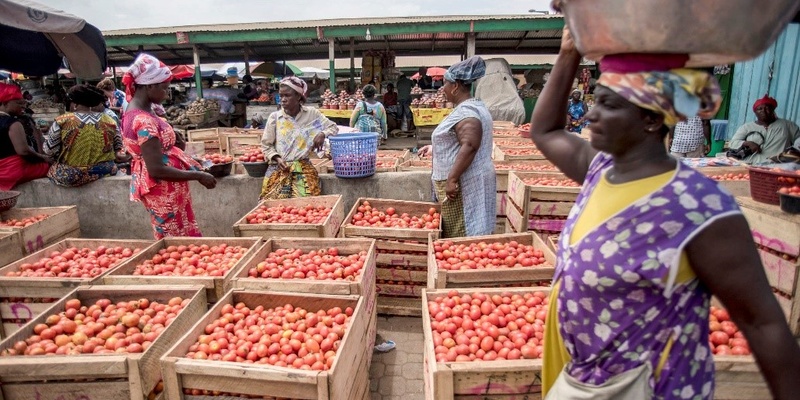IPPC webinar supports African countries to adopt electronic phytosanitary certification
Posted on Mon, 24 Jul 2023, 16:31

©FAO/ Cristina Aldehuela
Rome, 20 July 2023. The International Plant Protection Convention (IPPC) Secretariat successfully held a webinar last month to introduce the IPPC ePhyto Solution to African countries and to elaborate its functions and associated benefits. The webinar, held in two separate sessions in English and French, was also an opportunity for four African countries to share their experiences in issuing and receiving electronic phytosanitary certificates or ePhytos. The IPPC ePhyto Solution is an innovative tool that allows issuance of digital phytosanitary certificates. This makes exchanging phytosanitary information between importing and exporting countries quicker, more reliable and less prone to error or fraud. As a result, global trade in plants and plant products is safer, faster and cheaper.
The webinar drew participants from national plant protection organizations (NPPOs), donors, government agencies such as customs, trade and postal services, plus individuals from development organizations and the private sector. Presentations were made by representatives from the IPPC Secretariat, the ePhyto Industry Advisory Group, the ePhyto Steering Group and NPPOs of South Africa and Uganda (English session) and Cameroon and Senegal (French session). The countries shared their experiences on successfully using the IPPC ePhyto Solution.
Country experiences
Uganda transitioned to using ePhytos to solve its challenges in referencing the authenticity of sources of consignments, trade interceptions due to inadequate documentation, high costs of printing and storing paper certificates, delays in government procurement systems for paper certificates and delayed data analysis and reporting to inform the government’s decisions.
South Africa wanted to go paperless, reduce time and effort across processes and increase access to trade. The IPPC ePhyto Solution thus provides real-time data, reduces costs and time associated with paper certificates, minimizes human error and improves transparency and traceability of traded commodities.
Since the adoption of the IPPC ePhyto Solution and exchange of ePhytos in October 2022 in Cameroon, processing times have reduced to less than 48 hours, traceability has improved and fraud and other related costs have reduced. Similarly in Senegal, since the country adopted the IPPC ePhyto Solution in 2022, it has improved its services to exporters; reducing the time spent and travel required to receive phytosanitary certificates. Activities related to use of fraudulent certificates have reduced and this has improved stakeholders' trust in the national system.
Call to action
“As of today, 126 countries worldwide have adopted the IPPC ePhyto Solution, demonstrating the value of this tool," said Osama El-Lissy, the IPPC Secretary. "Nevertheless, only ten African countries are exchanging ePhytos. This electronic exchange can be implemented in any country, is very beneficial and I encourage more African countries to adopt it,” he added.
He thanked the IPPC community, donors, the Inter-African Phytosanitary Council of the African Union (AU-IAPSC) and the Commission on Phytosanitary Measures (CPM) for supporting the implementation of the IPPC ePhyto Solution. Sandrine Bayendi Loudit, Senior Scientific Officer at AU-IAPSC reminded participants that “the CPM approved an appendix to the International Standard for Phytosanitary Measures No 12 on Phytosanitary certificates in 2014, to guide countries on exchanging ePhytos. But almost 10 years later, Africa accounts for only 18 percent of countries exchanging ePhytos."
"I therefore urge NPPOs to actively engage decision makers to help overcome implementation challenges such as limitations in the legal framework, inadequate IT infrastructure and limited human and financial resources. These challenges are real conditionalities for guaranteed support from technical and financial partners," she said.
Related information:
Websites: The IPPC ePhyto Solution ; ephytoexchange.org
Brochure: The IPPC ePhyto Solution - Investing in trade facilitation

